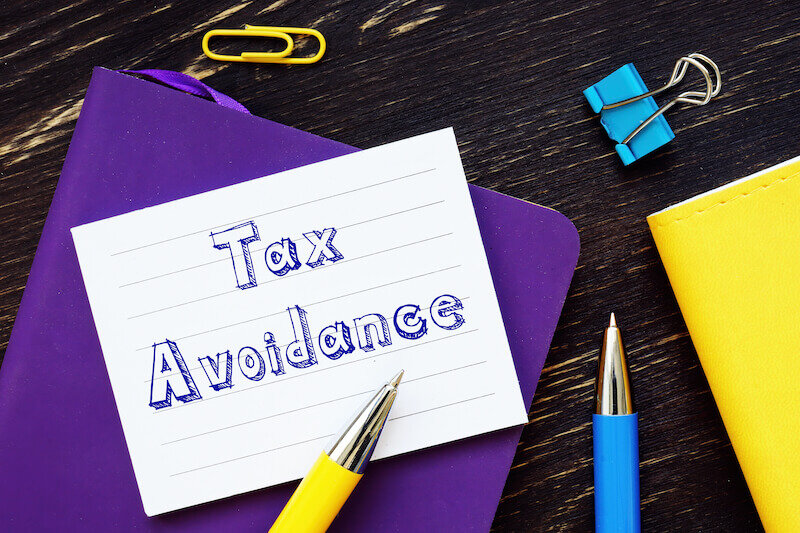Do you know how capital gains tax works? Do you know what capital gains taxes are? Are you concerned about the tax consequences of selling your Idaho house? You shouldn’t be embarrassed if you don’t. Capital gains are a complicated topic to grasp, especially when it comes to selling a home. There are so many costs, concerns, processes, and uniques situations to consider when you’re trying to sell a house in Idaho, especially if you’re a first-time seller, so you can’t be expected to be an expert on all of them.
That said, the more you can understand about capital gains taxes on real estate and their importance, the more likely it is that you’ll make the right decision for you when it comes time to sell your house in Idaho. That’s true whether you decide to sell your house on the housing market with a real estate agent or if you want to sell your house fast to a cash home buyer like Gem State Cash Offer. So let’s take a closer look at capital gains tax in Idaho and how you can avoid it when selling your home.
Avoid Capital Gains Tax When Selling A Home In Idaho?

What Is Capital Gains Tax?
When it’s time to sell your house in Idaho, you don’t want to be left asking yourself, “What is capital gains tax?” after you’ve negotiated the sale. At that point, it can sneak up on you and really take a big bite out of your profits. You could also miss out on the important exemptions that exist. So let’s dig into what capital gainst taxes is
Capital gains are the profits that you will make on a real estate sale or property deal. So, for example, let’s say that you purchased your house for $250,000. When you decide to sell the house, you’re able to sell it for $325,000. The $75,000 in profit is your capital gains. This is the difference between the price you purchased your Idaho house for and the price you were able to sell it at. Capital gains can also be applied to other property types, such as land, businesses, or stocks. However, we’ll keep the discussion in the realm of capital gains on home sales, in which there are two distinct types.
Capital gains tax is the tax that you pay on those capital gains. The time in which you owned your Idaho house is going to play a role in the type of Idaho capital gains tax you could end up being responsible for. If you’ve owned the property for one year or less, then it falls under the short-term capital gains tax bracket. This tax rate is equal to the regular income tax rate in your current tax bracket based on income.
However, if you’ve owned the property for longer than one calendar year, you are now responsible for long-term capital gains tax. The long-term capital gains tax rate is going to be dependant on your taxable income and filing status but will fit within one of three rates: Zero percent, 15 percent, or 20 percent.
Capital Gains Tax in Idaho
Now let’s talk a little bit about the specifics that come with selling a house in Idaho and the capital gains tax you’ll be responsible for.
In Idaho, capital gains happen when you sell an asset such as a house for more than what you paid for it. As mentioned, this can be a short-term or long-term gain, and you need to report it on your income tax return to the IRS. You can also have a capital loss when you sell an asset like your house for less than what you paid for it. The good news is that Idaho will let you take a capital gains deduction for qualifying property within the state.
In order to qualify for the deduction in Idaho, homeowners will need to meet certain criteria. The first involves what’s known as real property. In this instance, the property must have been owned for at least 12 months and then sold after January 2005. Real property can mean land, other easements, and property as defined by the IRS. There are other types of personal property that qualify but that is unrelated to homes.
Even if you live in Idaho, there are certain capital gains that do not qualify for the deduction. They include any real property not located within the state, as well as stocks, or interests in a partnership or S corporation.

Can You Avoid Capital Gains Tax?
The good news is that it is possible to sell your house in Idaho and avoid paying capital gains tax. The IRS provides a few ways to avoid paying capital gains tax on real estate sales.
Right off the bat, if you are single, they will allow you to exclude $250,000 of capital gains. If you are married and file jointly, you can exclude $500,000 of capital gains. So if you bought an Idaho house for $200,000 five years ago and then sold it today for $475,000, you would make $200,000 in capital gains. Let’s say you are married and you file jointly. In that case, the $200,000 may not be subject to capital gains tax. If you are single, $250,000 of that profit may not be subject to the capital gains tax but the remaining $25,000 would not be exempt.
It’s important to note that it’s always that you “may” be exempt from capital gains tax because there are certain rules and caveats you need to remember. These criteria are necessary in order to claim the exemption, and if you don’t meet them, you will be responsible for the full amount of capital gains tax on your Idaho home sale.
Those criteria that could disqualify you from the exemption include if the Idaho house was not your place of residence, if you owned the house for less than two years in the five years before you decided to sell if you didn’t live in the house for at least two of the last five years before selling if you’ve already claimed the aforementioned exclusions from a prior home sale in the last two years if you acquired the house through a swap with another property in the last five years, and if you are subject to expatriate tax as a renounced U.S. citizen. There are some exclusions to these criteria, but they mostly apply to military members and senior citizens.
Along with those exemptions, there is another solution to avoid paying capital gains tax. If you think that any taxes will make your home sale untenable or not worth it on the housing market, there are some things to consider.
The first thing you can do is simply wait until you’ve lived in the house for at least two years. You don’t even need to live there in consecutive years, but make sure you call this Idaho house your primary residence for two years within a five-year period. If you decide to sell your Idaho house without living in it for two years in this time period, you will have to pay taxes on the capital gains.
Selling your Idaho house less than a year after buying it is an even more expensive proposition because then the short-term capital gains tax is going to be applied. Because of that, it’s going to be higher than the long-term capital gains tax. So whatever you decide to try to avoid paying capital gains taxes, try to live in the Idaho house for at least two years.
The next thing you can do is check to see if you qualify for any exceptions beyond the ones we’ve mentioned. Even if you have a capital gain on your Idaho home sale that is taxable, it is possible you might still be able to exclude some or all of the taxes. There are certain exclusions you can look for, such as those that are related to health reasons, work issues, or “unforeseeable events.” You’ll want to give IRS Publication 523 a good once-over and study the fine print to find out what you might qualify for.
Something else to keep in mind that you should always hang onto all of your home improvement receipts and records. When the IRS is figuring out the cost basis of your Idaho house, that number isn’t just based on what you paid for it but also any improvements or renovations you’ve made since then. This can have a big impact on your capital gains because it can raise your cost basis. If you purchased your house for $250,000, you may have paid $40,000 to do a remodel on the kitchen or an expansion. So if you end up selling the house for $300,000, you’ll only be paying capital gains tax on $10,000 instead of $50,000. That’s a pretty big difference when it comes to taxable income. However, you’ll need to prove it so be sure to keep all your documentation handy.
And of course, you can avoid paying these taxes altogether, along with the hassle involved with selling your house on the market, by working with a cash buyer like Gem State Cash Offer. We buy houses in Idaho as-is and we pay cash for them. If you want to sell your house without worrying about the fees and costs that come with working with a real estate agent, we can make you a fair cash offer within one business day and we can close on your schedule, often in a matter of days. Then you’ll get cash for your Idaho house and you’ll be able to have a hassle-free home sale experience.
